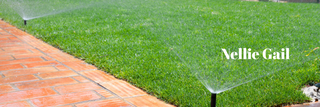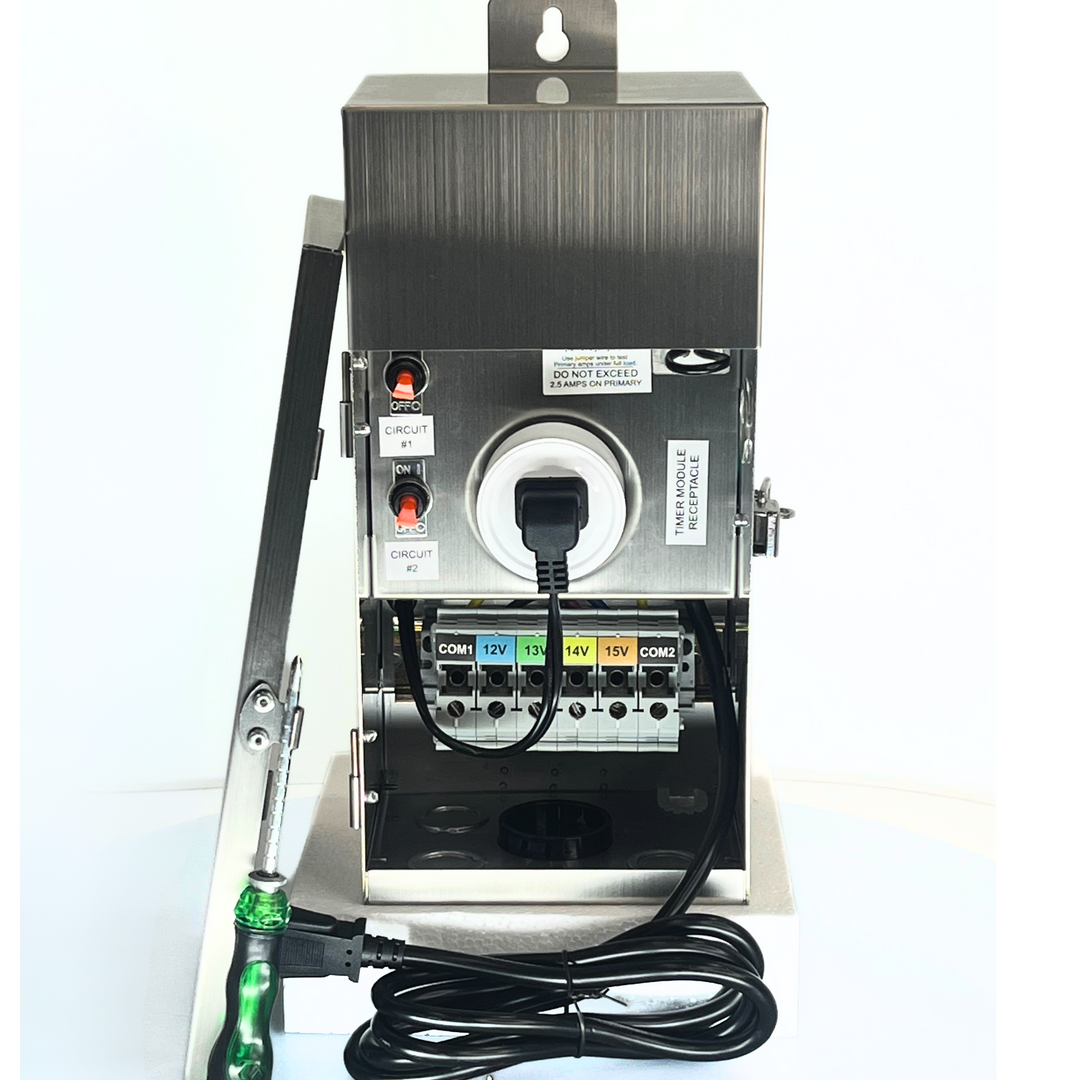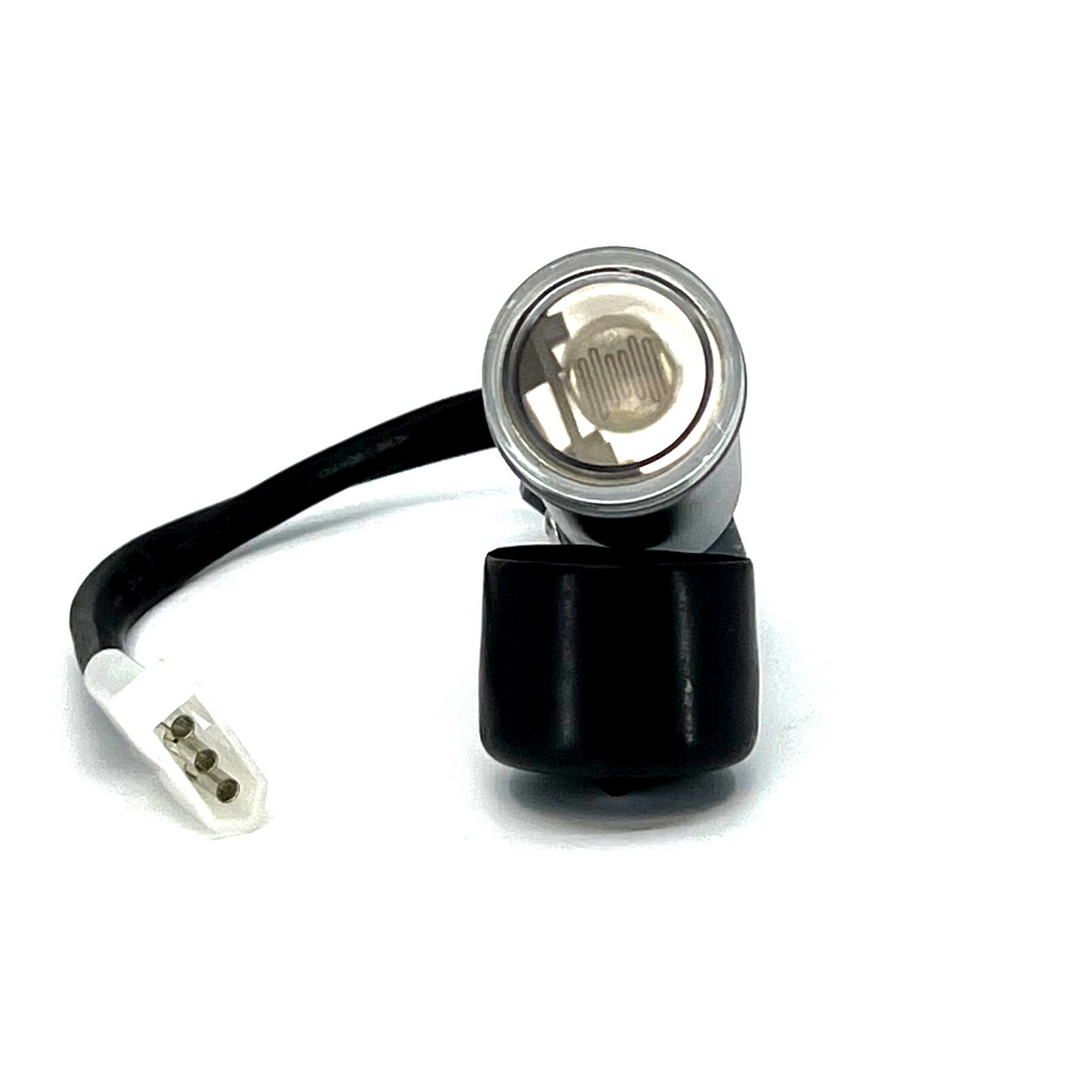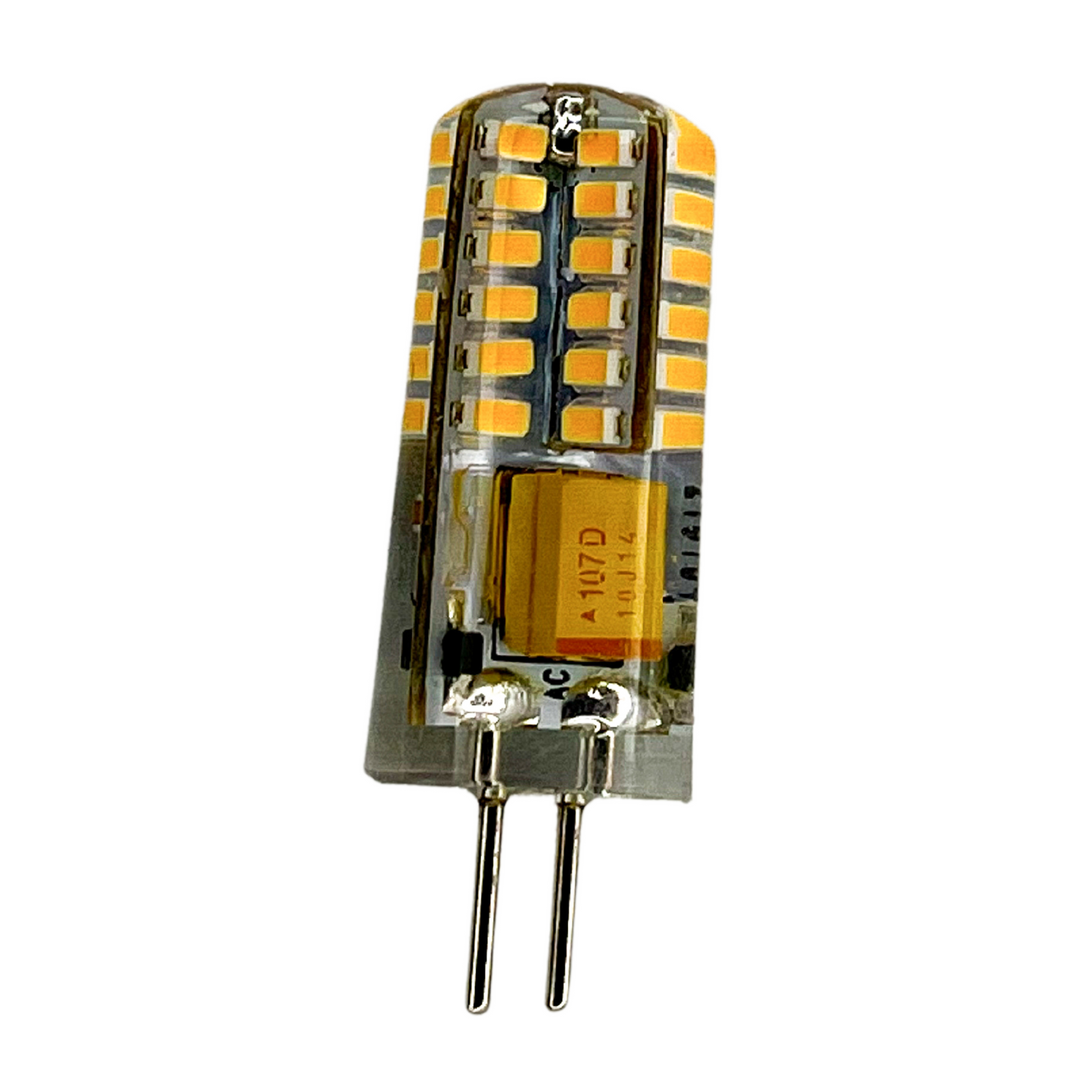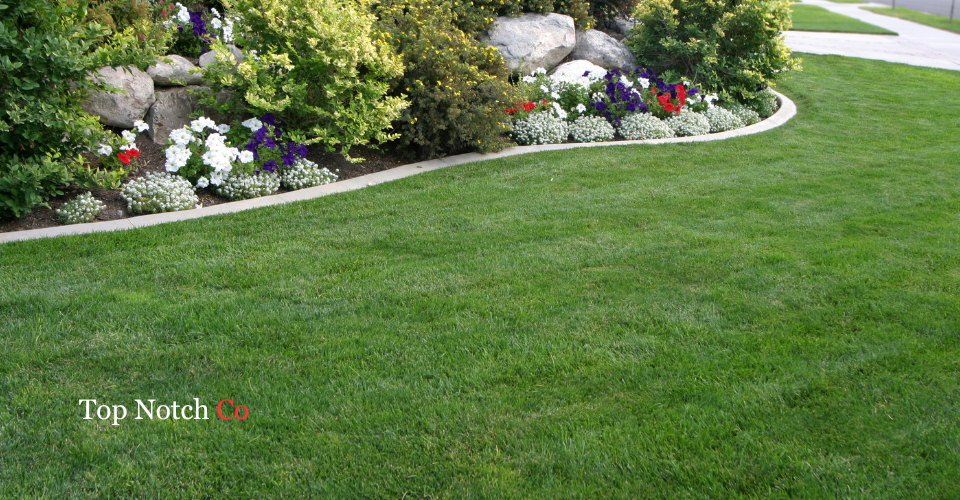
Your Home Sprinklers Not Cooperating? Let Me Show Them Who's Boss!
|
|
Time to read 6 min
A verdant lawn and a thriving garden are the crowns of diligent gardening, yet they're often at the mercy of your home's sprinkler system. When this silent ally in garden maintenance starts acting up, it can lead to a host of issues, from parched patches of grass to waterlogged flower beds. This comprehensive guide is designed to empower you with the know-how to diagnose, troubleshoot, and rectify common sprinkler system ailments, ensuring your green space remains a lush oasis.
Home Sprinklers: Understanding Your Sprinkler System
At the heart of a flourishing garden lies a well-designed sprinkler system, a network of valves, pipes, heads, and controllers working in harmony to hydrate your garden. Grasping the basics of this system—the role of each component, how they interact, and common points of failure—can transform a daunting array of tubes and timers into a manageable maintenance task. This foundational knowledge is your first step towards mastering sprinkler system upkeep.
Common Sprinkler System Problems and Solutions
• Sprinkler Head Issues: The frontline soldiers of your irrigation army, sprinkler heads, can fall victim to clogs from dirt or damage from lawn equipment. Regular inspections can catch these issues early, and a gentle cleaning or straightforward replacement can often remedy the situation. Matching the replacement head to your system's specifications is crucial to ensure seamless operation.
• Low Water Pressure: The lifeblood of your sprinkler system, water pressure, when diminished, can lead to inadequate irrigation coverage. Begin your investigation at the source: check for leaks in the pipes, ensure valves are fully operational, and confirm that your home's water supply is robust. Adjusting or repairing these elements can often restore optimal pressure levels.
• Leaks and Flooding: Water pooling on the surface can indicate a leak within the system, a potentially wasteful and damaging issue. Early detection through routine checks can mitigate the damage. Repairing leaks promptly not only conserves water but also protects the integrity of your garden's ecosystem.
• Electrical and Controller Troubles: The brains of the operation, your sprinkler system's controller, directs the watering schedule. Electrical issues here can silence your system. Familiarity with the controller's functions, coupled with basic voltage testing using a multimeter, can illuminate and rectify these issues, keeping your system on schedule.
Advanced Troubleshooting Techniques
Armed with a multimeter and a keen eye for system layout, the more adventurous homeowner can tackle advanced troubleshooting tasks such as electrical diagnostics and strategic pipe rerouting to avoid root intrusion. These techniques, while more complex, can save a system from significant issues down the line.
Incorporating Technology for Efficiency
The integration of smart technology into sprinkler systems has been a game-changer. Modern smart controllers can adjust watering based on real-time weather data, soil moisture levels, and even plant type, ensuring each part of your garden receives the precise amount of water it needs, exactly when it needs it, promoting water conservation and plant health.
Professional Help vs. DIY
While the empowered homeowner can address many sprinkler system issues, some situations—complex electrical faults, deep-rooted leaks, or system overhauls—warrant professional expertise. Recognizing when to call in a specialist can prevent exacerbating issues and ensure the longevity and efficiency of your system.
Maintaining a lush lawn and vibrant garden is a point of pride for many homeowners, and a well-functioning sprinkler system is crucial to achieving this. However, even the best systems can encounter issues such as leaks, clogs, uneven watering, or malfunctioning heads. This guide aims to empower you with practical tips and solutions to address these common problems, ensuring your Home Sprinklers work efficiently to keep your outdoor spaces thriving.
Identifying and Fixing Leaks: Leaks in your sprinkler system can lead to water wastage and uneven watering. To identify leaks, visually inspect your system while it's running for any unexpected water puddles or soggy areas. Once identified, turn off the water supply and examine the problematic section for damaged pipes or loose connections. Small leaks can often be fixed with waterproof tape or pipe sealant, while more significant damage may require replacing sections of pipe.
Clearing Clogs: Sprinkler heads can become clogged with dirt and debris, leading to reduced water flow or uneven spray patterns. To clear a clog, first, turn off the system and remove the affected head. Rinse it under water to remove any debris. If the clog persists, use a small wire or needle to gently clear the nozzle holes. Reattach the head and test the system to ensure the water flow has returned to normal.
Correcting Uneven Watering: Uneven watering can result from improperly adjusted sprinkler heads or pressure issues. Check each sprinkler head to ensure it's correctly aimed and covering the intended area. If the problem is due to low pressure, inspect the system for leaks or clogs that may be affecting water flow. Adjusting the valves or cleaning the filter at the system's main entry point can also help restore proper pressure.
Troubleshooting Malfunctioning Sprinkler Heads: Over time, sprinkler heads can wear out or become damaged, leading to malfunctions. If a head isn't popping up, it may be stuck due to dirt or debris. Gently clean around the head and lubricate the riser with silicone spray. For heads that won't retract, check for obstructions or damage to the spring mechanism inside the head, which may require replacement.
Frequently Asked Questions
This FAQ section provides quick answers to common concerns homeowners may have about their sprinkler systems, offering practical advice to maintain an efficient and effective irrigation system.
How can I tell if my sprinkler head needs cleaning or replacing?
If your sprinkler head is not spraying water as efficiently as it used to or if it's not popping up, it might be clogged with dirt and debris. Try cleaning it first by removing the head and rinsing it under water. If the problem persists or if the head is visibly damaged, it may need to be replaced.
What should I do if I notice a decrease in water pressure in my sprinkler system?
A decrease in water pressure can be due to several issues such as valve malfunctions, leaks in the piping, or problems with the main water supply. Start by inspecting the valves and pipes for any visible signs of damage or leaks. If everything seems intact, check the water supply to ensure it's adequate for your system.
Can a leak in my sprinkler system lead to higher water bills?
Yes, even a small leak in your sprinkler system can waste a significant amount of water, leading to higher water bills. Regularly inspect your system for leaks, especially in areas where the pipes are buried, as these can be harder to detect.
Is it necessary to upgrade to a smart sprinkler controller?
While not necessary, upgrading to a smart sprinkler controller can provide significant benefits, including improved water efficiency and ease of use. Smart controllers can adjust watering schedules based on weather conditions, soil moisture levels, and other factors, ensuring that your lawn and garden receive the right amount of water at the right time.
How often should I perform maintenance on my sprinkler system?
It's a good idea to perform basic maintenance on your sprinkler system at least twice a year, typically in the spring and fall. This includes checking for leaks, cleaning or replacing clogged or damaged sprinkler heads, and adjusting the watering schedule for the season.
What's the best way to prevent sprinkler heads from getting damaged?
To prevent damage to your sprinkler heads, ensure they are correctly installed at the proper height, and avoid running over them with lawn mowers or other heavy equipment. Consider installing protective guards around the heads, especially those located in high-traffic areas or close to driveways.
Three Practical Tips or Facts
1. Effective Zone Planning: For optimal irrigation, your home sprinkler system should be divided into zones based on plant type, sunlight exposure, and soil condition. This ensures that each area receives the appropriate amount of water, conserving water while promoting healthy plant growth.
2. Seasonal Adjustments: It's crucial to adjust your sprinkler system settings with the changing seasons. In the warmer months, your garden may require more water due to increased evaporation rates. Conversely, during rainy seasons, reducing the watering frequency can help prevent overwatering and water wastage.
3. Regular Maintenance Checks: Conducting regular maintenance checks, including inspecting for leaks, cleaning clogged sprinkler heads, and testing the system's pressure, can significantly extend the life of your sprinkler system and improve its efficiency, preventing common issues such as uneven watering or water waste.
Our Recommendation
Final Thoughts
The key to a vibrant garden and a lush lawn lies not just in the seeds you sow but in the care and maintenance of your sprinkler system. Equipped with the insights from this guide, you're now poised to keep your irrigation system in peak condition, ensuring it serves you and your garden well into the future. Book Online Now to Get a Free Quote!









